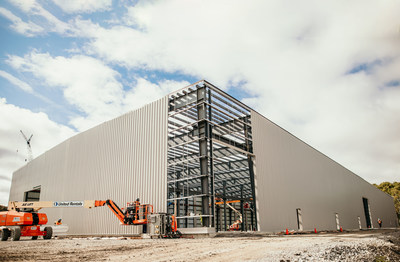Electra Battery Materials Corporation provided an update on the commissioning of its cobalt refinery located north of Toronto, confirming that it remains on track to meet project timelines, including the launch of a black mass recycling demonstration, and capital cost guidance announced with its Q2 2022 reporting.



“Electra continues to build momentum,” said Trent Mell, CEO of Electra Battery Materials. “On the heels of our commercial agreement with LG Energy Solution announced last week, we are excited by the continued progress at our refinery and the prospects of our upcoming black mass recycling demonstration plant. Building upon successful metallurgical testing and engineering work, and the receipt and installation of key pieces of equipment, we anticipate launching our battery recycling demonstration plant at the Ontario refinery site this fall.”
Mr. Mell added, “The plant demonstration, which will be conducted in concert with ongoing commissioning efforts at the refinery, is expected to produce five marketable products. Revenue generated from black mass recycling activities will be accretive to results expected from the sale of cobalt sulfate that is anticipated beginning in spring 2023 when the refinery is commissioned.”
Through September 28, 2022, Electra’s progress on the refinery commissioning project can be measured by a number of key developments, including:
Electra has completed process development and engineering on recycling black mass material, a byproduct generated by the end-of-life EV battery recycling and other recycled lithium-based battery sources.
Electra sourced black mass samples from suppliers in Europe and North America, studied the feed characteristics, and developed a hydrometallurgical process route to recover contained lithium, nickel, cobalt, copper and graphite. The test work was conducted using the facilities of SGS Labs in Lakefield, Ontario and engineering was completed using the combined resources of Electra technical personnel, supported by process design engineers of Hatch Associates and mechanical and electrical engineering support by Bestech.
Electra is retrofitting its existing refinery to accommodate its black mass process and plans to conduct large scale bulk runs to establish the process parameters, generate data for further optimization and validate the recoveries and quality of various marketable products.
Under the parameters of the black mass demonstration, Electra plans to process up to 75 tonnes of material in a batch mode using the facilities of the refinery. The process samples that will be collected during the bulk run will be analyzed by Electra’s laboratory, which is fully equipped with required instrumentation, including X-ray Fluorescence (XRF), Atomic Absorption (AA) and Inductively Coupled Plasma (ICP) analytical equipment.
Electra will use a hydrometallurgical process to the treat black mass. This process has a low carbon footprint and produces stable non-acid generating tailings, thereby reducing environmental impacts while meeting or exceeding water discharge effluent criteria as stipulated by both federal and provincial regulations.
Electra is a processor of low-carbon, ethically-sourced battery materials. Currently commissioning North America’s only cobalt sulfate refinery, Electra is executing a multipronged strategy focused on onshoring the electric vehicle supply chain. Keys to its strategy are integrating black mass recycling and nickel sulfate production at Electra’s refinery located north of Toronto, advancing Iron Creek, its cobalt-copper exploration-stage project in the Idaho Cobalt Belt, and expanding cobalt sulfate processing into Bécancour, Quebec. For more information visit www.ElectraBMC.com.